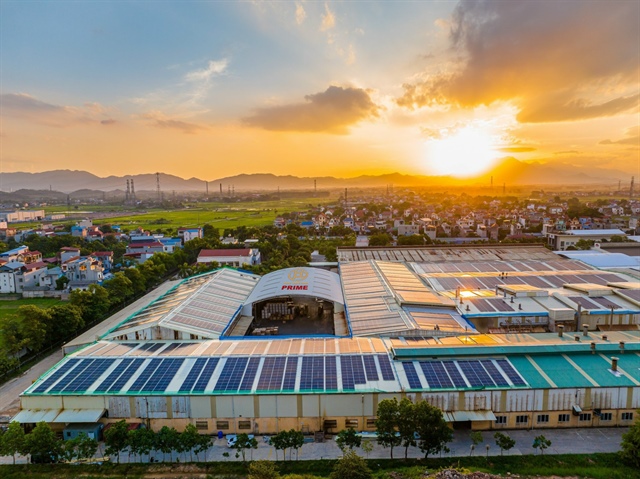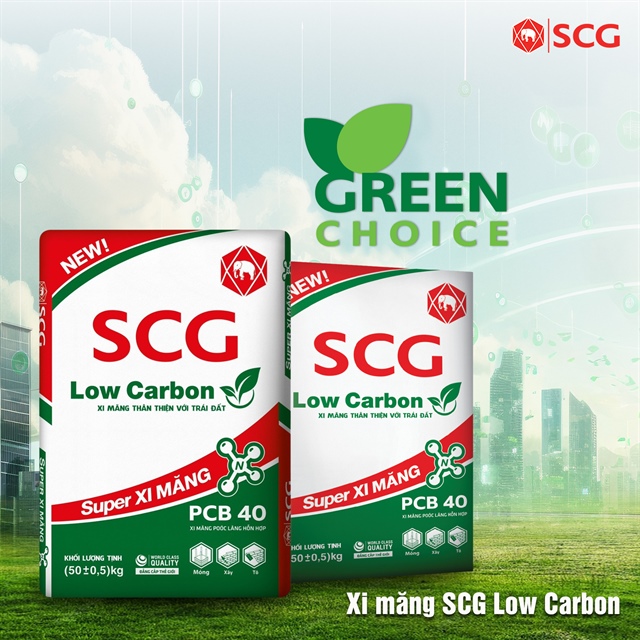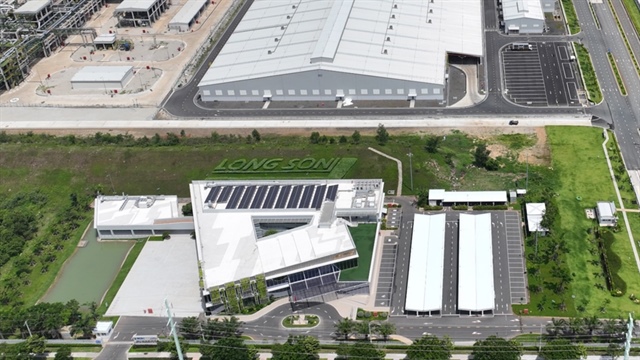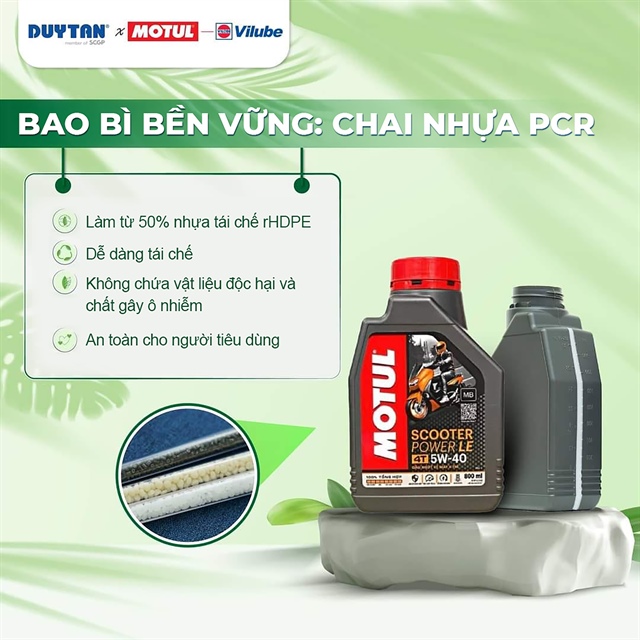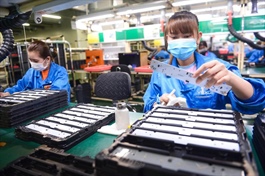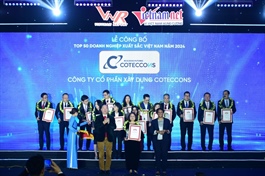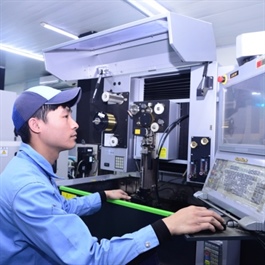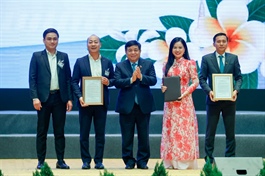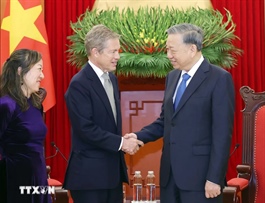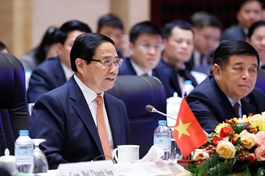SCG Group shares circular economy initiatives at Vietnam forum
SCG Group shares circular economy initiatives at Vietnam forum
Thailand’s SCG Group recently shared its experiences and initiatives to support the realization of the National Action Plan on Circular Economy (NAPCE) at the Vietnam Circular Economy Forum 2024.
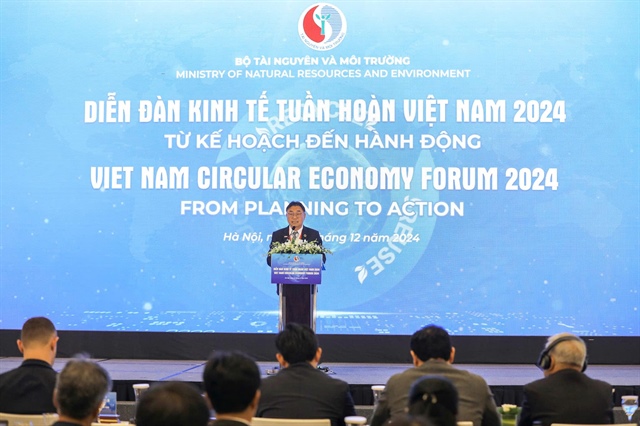
Dr. Chana Poomee, chief sustainability officer at SCG Group, speaks at the Vietnam Circular Economy Forum 2024 in Hanoi, December 10, 2024. Photo: SCG |
Under the theme 'From Plannning to Action,' the forum, organized by the Ministry of Natural Resources and Environment, brought together large enterprises, NGOs, research institutes, and leading experts.
From planning to action
The event specifically focused on advancing NAPCE, discussing policy mechanisms from government ministries, and highlighting sustainable initiatives by leading corporations, all aimed at building a sustainable circular economy by 2030.
Experts anticipated that the NAPCE will provide a clear framework to encourage industries to adopt circular business models, promoting sustainable production and consumption, while minimizing waste and unlocking new opportunities for innovation and creativity within businesses.
As one of the pioneers of green transformation in ASEAN and Vietnam, SCG has been actively contributing to the development and implementation of the NAPCE over the past three years.
Dr. Chana Poomee, chief sustainability officer at SCG Group, emphasized during the forum that implementing the circular economy is key to sustainable growth and enhancing environmental resilience.
In the face of global challenges such as extreme weather events, like super typhoon Yagi, which hit northern Vietnam in September last year, it is crucial to transition quickly from a linear economic model to a circular one, optimizing resources and minimizing waste.
|
|
| A Prime Group facility, a member of SCG. Photo: SCG |
Dr. Chana Poomee expressed his enthusiasm upon hearing Deputy Minister of Natural Resources and Environment Tran Quy Kien highlight the ongoing legal and policy changes aimed at supporting businesses in their green transition.
The deputy minister outlined that the success of businesses in reducing emissions depends on a balanced combination of four key factors.
First, businesses must prioritize innovation, developing green solutions from the production stage to minimize environmental impact.
Second, investing in and adopting advanced technologies is essential for optimizing efficiency and reducing emissions.
Additionally, businesses must understand the market and respond to growing customer demand for environmentally friendly products, thereby enhancing their competitiveness.
Finally, stable financial resources are crucial for businesses to implement new initiatives and technologies, while also raising public awareness of the benefits of sustainable products.
Dr. Chana emphasized that government support through effective policies is a critical factor for businesses to overcome obstacles in the green transformation process.
He praised Vietnam’s leadership in this area, noting that the country is making significant strides in this direction.
Effective circular solutions
Sharing practical insights from the group, Dr. Chana explained that SCG operates across three key sectors: Cement & Construction Materials (CBM), Petrochemicals (SCG Chemicals - SCGC), and Packaging (SCG Packaging - SCGP).
Each sector adopts circular economy models to create sustainable value.
|
|
| The SCG Low Carbon Cement product line. Photo: SCG |
In the Cement & Construction Materials sector, SCG has implemented green production processes based on circular principles.
A key initiative includes the use of biomass energy, which replaces 30 percent of fossil fuels, leading to significant reductions in CO2 emissions.
The group has deployed a Waste Heat Recovery system since 2014, which now meets 30 percent of its renewable energy needs.
Thanks to these green production efforts, SCG introduced the SCG Low Carbon Cement product line, which reduces emissions by 20 percent compared to traditional cement.
Prime Group, a member of SCG, has also transitioned from coal to biomass, integrated solar energy, and switched to electric forklifts in place of diesel vehicles.
These steps not only reduce environmental impact but also help create a sustainable production chain in alignment with NAPCE requirements.
|
|
| SCG’s Long Son Petrochemical Complex. Photo: SCG |
In the petrochemical industry, the group’s Long Son Petrochemical Complex (LSP) employs environmentally friendly technologies, including a closed ground flare system and an air pollution control system.
LSP also runs community programs, such as waste classification initiatives, to raise awareness of the circular economy among younger generations.
In the packaging sector, SCG focuses on redesigning products with a circular approach.
The R1 initiative, for example, involves packaging made from a single polymer, making it easier to recycle.
SCGP has also developed bottle packaging made from high-quality post-consumer recycled (PCR) plastic and redesigned bottle caps that stay attached to the bottle body, reducing plastic waste.
|
|
| SCGP’s packaging innovations reduce waste and enable easier recycling. Photo: SCG |
Through these pioneering efforts, SCG has achieved significant breakthroughs in the circular economy, transforming its internal processes and greening its entire supply chain.
Dr. Chana Poomee affirmed the group’s ongoing commitment to advancing NAPCE, promoting green technologies, supporting clean energy initiatives, and progressing towards a circular economy.


